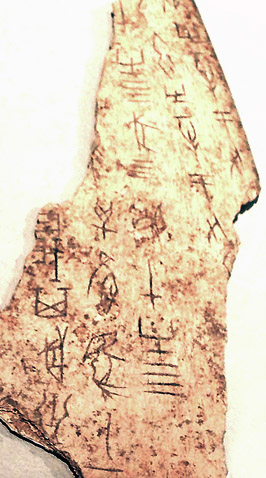Henan
Henan is a province located in the central part of the People's Republic of China. It is often referred to as the cradle of Chinese civilization due to its historical significance as a cultural, political, and economic center throughout various periods in China's history. Henan is bordered by the provinces of Shanxi to the north, Hebei to the northeast, Shandong to the east, Anhui to the southeast, Hubei to the south, Shaanxi to the west, and Jiangsu to the east across the Yellow River which runs through the province from west to east.
Geography[edit | edit source]
Henan, with its capital at Zhengzhou, covers an area of approximately 167,000 square kilometers. It features a diverse landscape that includes portions of the Yellow River plains, the Taihang Mountains, and the Funiu Mountain range. The province experiences a continental monsoon climate with distinct seasons, including hot summers and cold winters.
History[edit | edit source]
Henan's history is among the richest in China. It was the heartland of ancient Chinese civilization, with several of the earliest dynasties, including the Shang and Zhou, establishing their capitals in the region. The province is home to numerous historical sites, such as the Yinxu ruins, the ancient city of Luoyang, and the Shaolin Temple, known for its association with Chinese martial arts and Zen Buddhism.
Economy[edit | edit source]
The economy of Henan is one of the largest among the provinces of China. It is highly diversified, with significant contributions from agriculture, manufacturing, and services. Henan is a leading producer of grains, cotton, and oilseeds in China. The province also has a robust industrial sector, with industries such as textiles, coal, machinery, and electronics playing vital roles. Zhengzhou has emerged as a major logistics hub, partly due to its central location in China.
Demographics[edit | edit source]
Henan is the most populous province in China, with a population exceeding 95 million people. The majority of the population is of the Han Chinese ethnicity, with a small number of ethnic minorities. Mandarin Chinese is the predominant language, and the province has a rich cultural heritage, including traditional music, opera, and cuisine.
Culture[edit | edit source]
Henan's cultural heritage is profound, with the province being a significant center for Chinese opera, such as the Yuju Opera, and traditional Chinese music. The province is also known for its martial arts heritage, particularly the Shaolin style of kung fu. Henan cuisine, characterized by its use of wheat-based staples and a wide variety of cooking techniques, is an essential part of China's culinary tradition.
Tourism[edit | edit source]
The province is a popular tourist destination, attracting visitors with its historical sites, cultural landmarks, and natural beauty. Key attractions include the Longmen Grottoes, a UNESCO World Heritage site featuring thousands of statues of Buddha and his disciples carved into the limestone cliffs, and the Songshan Mountain, one of the five sacred mountains in China.
Administration[edit | edit source]
Henan is divided into 17 prefecture-level divisions: 12 cities and 5 prefecture-level cities. Each of these is further divided into counties, county-level cities, and districts. Zhengzhou serves as the political, economic, and cultural center of the province.
Search WikiMD
Ad.Tired of being Overweight? Try W8MD's physician weight loss program.
Semaglutide (Ozempic / Wegovy and Tirzepatide (Mounjaro / Zepbound) available.
Advertise on WikiMD
|
WikiMD's Wellness Encyclopedia |
| Let Food Be Thy Medicine Medicine Thy Food - Hippocrates |
Translate this page: - East Asian
中文,
日本,
한국어,
South Asian
हिन्दी,
தமிழ்,
తెలుగు,
Urdu,
ಕನ್ನಡ,
Southeast Asian
Indonesian,
Vietnamese,
Thai,
မြန်မာဘာသာ,
বাংলা
European
español,
Deutsch,
français,
Greek,
português do Brasil,
polski,
română,
русский,
Nederlands,
norsk,
svenska,
suomi,
Italian
Middle Eastern & African
عربى,
Turkish,
Persian,
Hebrew,
Afrikaans,
isiZulu,
Kiswahili,
Other
Bulgarian,
Hungarian,
Czech,
Swedish,
മലയാളം,
मराठी,
ਪੰਜਾਬੀ,
ગુજરાતી,
Portuguese,
Ukrainian
Medical Disclaimer: WikiMD is not a substitute for professional medical advice. The information on WikiMD is provided as an information resource only, may be incorrect, outdated or misleading, and is not to be used or relied on for any diagnostic or treatment purposes. Please consult your health care provider before making any healthcare decisions or for guidance about a specific medical condition. WikiMD expressly disclaims responsibility, and shall have no liability, for any damages, loss, injury, or liability whatsoever suffered as a result of your reliance on the information contained in this site. By visiting this site you agree to the foregoing terms and conditions, which may from time to time be changed or supplemented by WikiMD. If you do not agree to the foregoing terms and conditions, you should not enter or use this site. See full disclaimer.
Credits:Most images are courtesy of Wikimedia commons, and templates, categories Wikipedia, licensed under CC BY SA or similar.
Contributors: Prab R. Tumpati, MD









